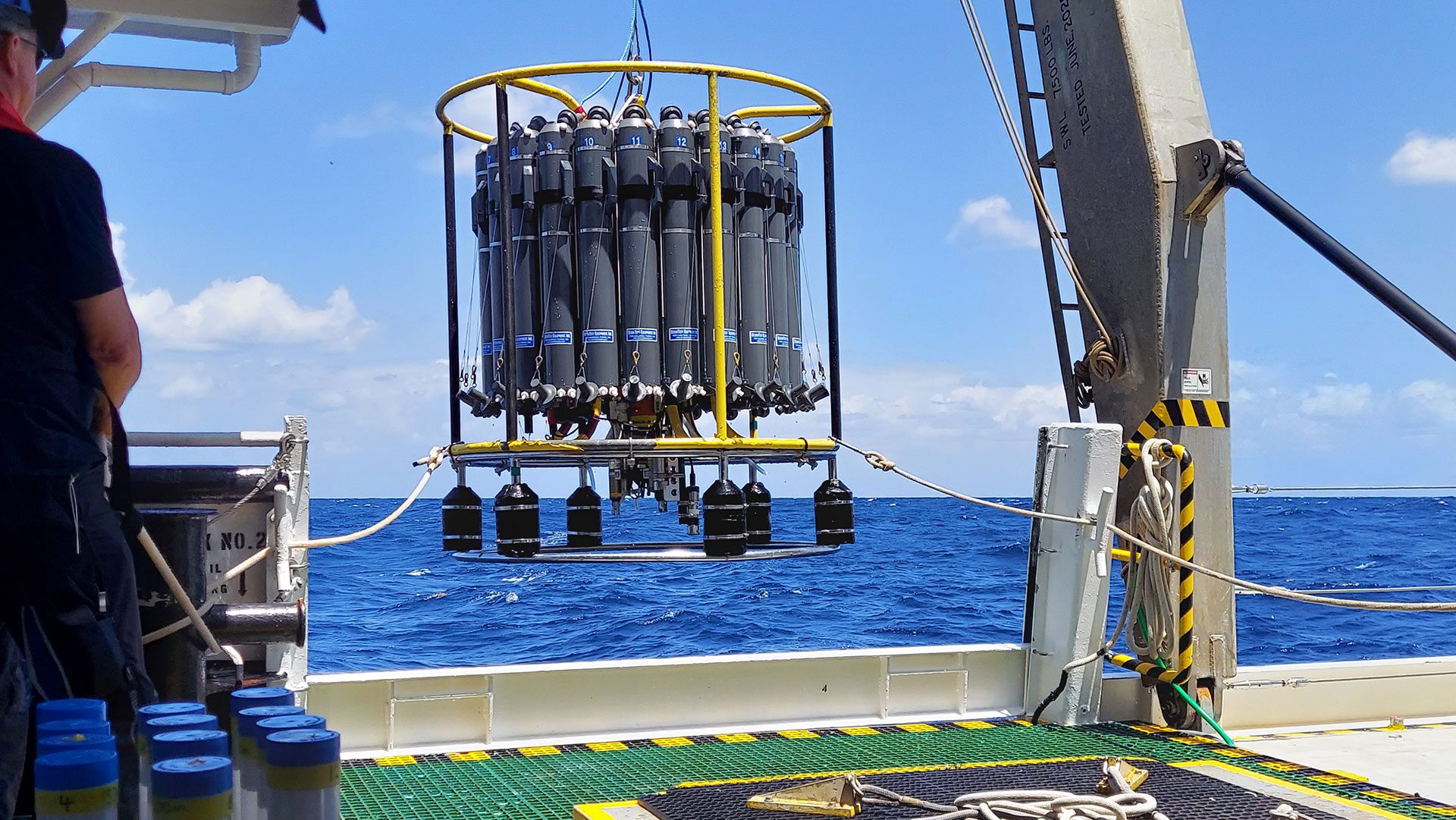News Releases
WHOI to Host Public Forum on Climate Change and Global Water Supplies
Severe droughts, floods, and storms are now a routine part of our nation’s weather forecast. Remarkably hot and dry weather in 2011 caused droughts in Texas, the Plains states and…
Read MoreStudy of Patagonian Glacier’s Rise and Fall Adds to Understanding of Global Climate Change
Increased global temperatures are frequently viewed as the cause of glacial melt, but a new study of Patagonia’s Gualas Glacier highlights the role of precipitation in the glacier’s fluctuation. The study, conducted by Sbastien Bertrand of the Woods Hole Oceanographic Institution (WHOI) and his colleagues, compares past temperature and rainfall data with sediment records of glacier fluctuations and the historical observations of early Spanish explorers.
Read MoreWoods Hole Consortium Delegates Participating in U.N. Climate Change Conference in Copenhagen this Week
CONTACTS: Andrea Early, Marine Biological Laboratory 508-289-7652; aearly@mbl.edu Media Relations Office, Woods Hole Oceanographic Institution 508-289-3340; media@whoi.edu Elizabeth Braun, Woods Hole Research Center 508-540-9900, x109; ebraun@whrc.org WOODS HOLE, MA—Directors and…
Read MoreClimate Change Meets Ocean Life in New Northeast Research Institute
Federal and academic marine scientists in the Northeast have combined resources in a new effort to understand how the large marine ecosystem off the northeastern U.S. functions. “I am very…
Read MoreIce-Covered Arctic Lakes May Harbor Signs of Climate Change
Arctic coastal environments are some of the most vulnerable to climate change. A team of WHOI researchers visited Canada’s Mackenzie River Delta in April 2007 to find out just how…
Read MoreOcean’s “Twilight Zone” Plays Important Role in Climate Change
A major study has shed new light on the dim layer of the ocean called the “twilight zone”where mysterious processes affect the ocean’s ability to absorb and store carbon dioxide…
Read MoreShould We Pump Iron to Slow Climate Change?
One of the solutions offered for the global greenhouse gas problem is the fertilization of the ocean; that is, spreading iron into the open ocean to promote the growth of…
Read MoreClimate Change in the Bottom of a Lake
Climate is often discussed in global terms, but it is the regional and local effects that will matter most to everyday people. WHOI geologist Jeff Donnelly and colleagues are looking…
Read MoreCaribbean Corals and Climate Change
Climate scientists are finding interesting clues to ancient climates in the corals of Honduras. During a trip earlier this month, they drilled cores from Montastrea (star corals) and Diploria (brain…
Read MoreLinking Climate Change Across Time Scales
What do month-to-month changes in temperature have to do with century-to-century changes in temperature? At first it might seem like not much. But in a report published in this week’s…
Read MoreFine-tuning the Steps in the Intricate Climate Change Dance
New scientific findings are strengthening the case that the oceans and climate are linked in an intricate dance, and that rapid climate change may be related to how vigorously ocean…
Read MoreNew Director Named for WHOI Ocean and Climate Change Institute
A Gulf Stream and ocean circulation expert has been named second director of the Ocean and Climate Change Institute at Woods Hole Oceanographic Institution (WHOI). Physical Oceanographer Terrence Joyce will…
Read MoreAbrupt Climate Change Brought to Public Attention in Hollywood Movie
The movie The Day After Tomorrow, released today by 20th Century Fox, paints a dramatic picture of the effects of climate change – and raises questions about the boundary between science and science fiction. How fast can Earth’s climate change? Will global warming raise sea level and flood coastal cities? If our climate cools, will it spawn an “ice age” in our lifetimes?
Read MoreRate of Ocean Circulation Directly Linked to Abrupt Climate Change in North Atlantic Region
A new study strengthens evidence that the oceans and climate are linked in an intricate dance, and that rapid climate change may be related to how vigorously ocean currents transport heat from low to high latitudes.
Read MoreScientists Explore New England Seamounts for Clues to Climate Change
Scientists are exploring the New England Seamounts, a chain of extinct, undersea volcanoes about 500 miles off the east coast of North America, searching for clues to climate change in deep sea corals. The public can join the expedition via the web at http://www.divediscover.whoi.edu.
Read MoreA Better Understanding of Gas Exchange Between the Atmosphere and Ocean Can Improve Global Climate Models
If scientists can improve the way models represent physical processes such as gas exchange, they can have more confidence in future simulations.
Read More
